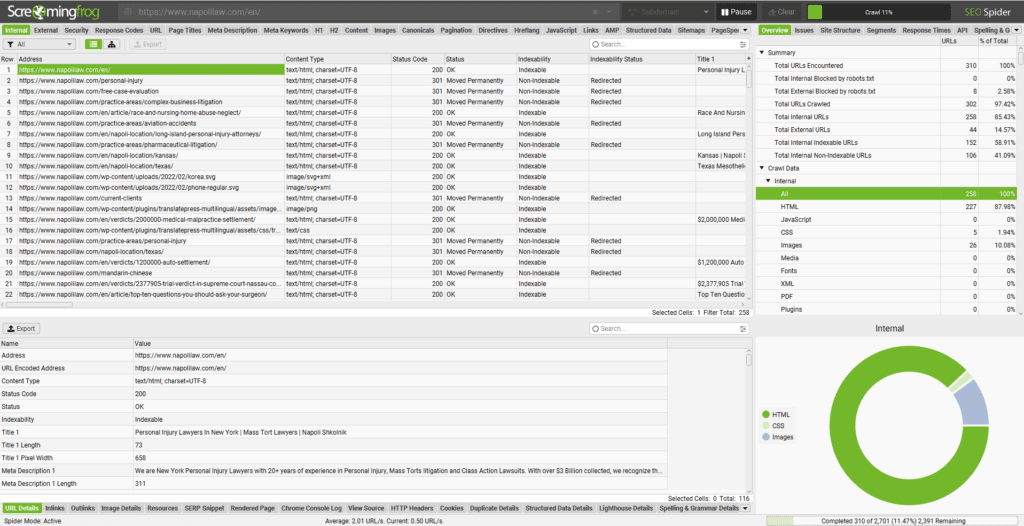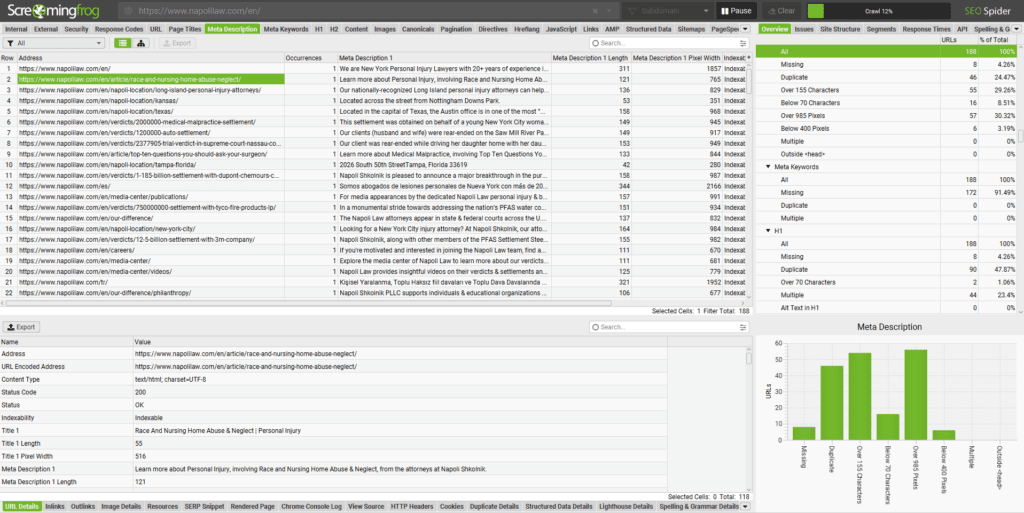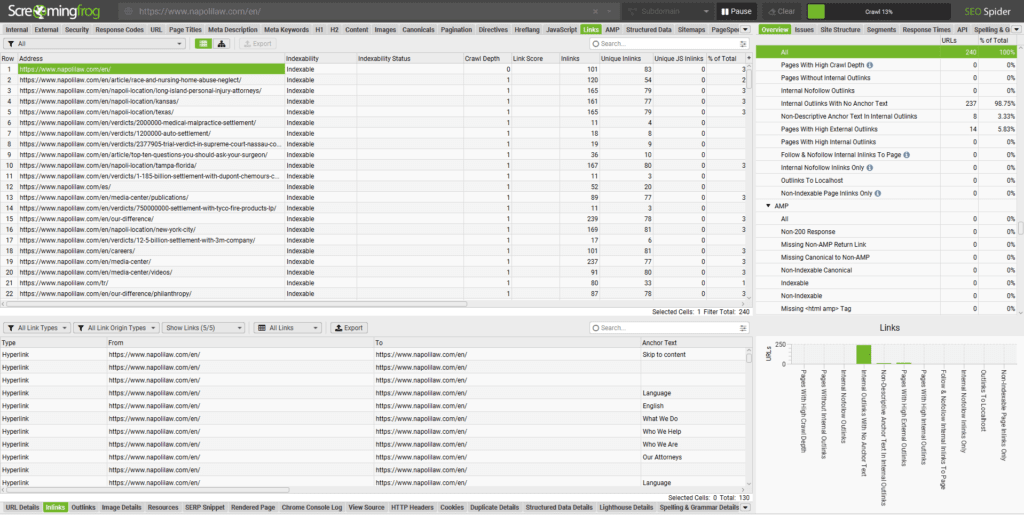Keeping a competitive edge in today’s fast-paced realm of digital marketing demands a well-planned SEO strategy. Among the many tools at an SEO professional’s disposal, the SEO log analyzer stands out as both powerful and frequently underutilized.
This guide will delve into what an SEO log analyzer is, how to make the most of it, the valuable insights it can offer, and why it’s essential in today’s era of AI-driven content creation.
What is an SEO Log Analyzer?
An SEO log analyzer is a specialized tool used to examine and interpret server log file data. These log files contain detailed records of server activity, including information about visitors, search engine bots, and other web crawlers. SEO log file analysis allows SEO professionals to gain insights into how search engines interact with their websites, identify issues, and make data-driven decisions to improve their rankings.

How to Use a Log Analyzer for SEO Purposes (Step-by-Step)
Using an SEO log analyzer involves several key steps. Here’s a step-by-step guide to help you get started:
Step 1: Access Log Files
The first step is to access and collect your server log files. These files are typically stored on your web server and can be downloaded via FTP or through your hosting provider’s control panel. Ensure you have access to a significant amount of historical data to get a comprehensive view of your website’s performance.
Step 2: Choose an SEO Log Analyzer Tool
Select an SEO log analyzer tool that suits your needs. Some popular options include Screaming Frog Log File Analyzer, Botify, and SEMrush Log File Analyzer. These tools offer various features and functionalities, so choose one that aligns with your requirements and budget.
Step 3: Upload and Parse Log Files
Once you have your log files and an SEO log analyzer tool, upload the files to the tool. The analyzer will parse the data and present it in a more accessible format, allowing you to interpret the information effectively.
Step 4: Analyze Search Engine Bot Activity
One of the primary uses of an SEO log analyzer is to monitor search engine bot activity. By analyzing which pages are being crawled, how often they are crawled, and how much time bots spend on your site, you can identify crawling patterns and potential issues. Look for pages not being crawled frequently or those that experience long crawl delays.
Step 5: Identify Crawl Errors and Issues
Log analyzers can help you identify crawl errors such as HTTP status code 404 (Not Found) and 500 (Internal Server Error) status codes. By pinpointing these errors, you can take corrective actions to ensure search engines can access and index your pages without hindrance.
Step 6: Assess User Behavior
Beyond search engine bots, log analyzers provide insights into user behavior. You can track user visits, the time spent on pages, and the paths they take through your entire site. This information can highlight which pages are performing well and which may need optimization.
Step 7: Optimize Crawl Budget
Your website’s crawl budget is the number of pages crawled within a given timeframe. By analyzing your log files, you can optimize your crawl budget by ensuring that important pages are crawled more frequently and less critical pages less often. This can be achieved by managing internal linking, updating sitemaps, and using the robots.txt file effectively.

Valuable Information from SEO Log Analyzers
SEO log analyzers provide a wealth of valuable information that can significantly impact your SEO strategy. Here are some key insights you can gain:
Search Engine Bot Behavior
Understanding how search engine bots interact with your site is crucial. Log analyzers reveal which pages are being crawled, the frequency of crawls, and any crawl delays. This information helps you identify and fix issues that may prevent bots from indexing your site effectively.
Crawl Errors
Identifying crawl errors is essential for maintaining a healthy website. Log analyzers highlight pages that return error codes, allowing you to address these issues promptly. Fixing crawl errors ensures that search engines can access all your content.
User Engagement
By tracking user visits and behavior, log analyzers provide insights into how users interact with your site. You can identify high-traffic pages, pages with high bounce rates, and user navigation patterns. This data helps you optimize your content and user experience.
Crawl Budget Optimization
Effective management of your crawl budget ensures that search engines prioritize important pages. Log analyzers help you allocate your crawl budget efficiently by identifying pages that need more frequent crawls and those that can be deprioritized.
Tips & Tricks for Using SEO Log Analyzers

To make the most of your SEO log analyzer, consider the following tips and tricks:
Regular Monitoring
Consistently monitor your log files to stay on top of any changes in search engine bot behavior and user interactions. Regular analysis allows you to identify and address issues promptly.
Segment Your Data
Segmenting your log data by date, user agent, and page type can provide more granular insights. This approach helps you identify specific trends and patterns that may not be apparent in aggregated data.
Compare Historical Data
Comparing log data over different time periods can reveal trends and changes in search engine behavior. This information is valuable for assessing the impact of SEO changes and algorithm updates.
Prioritize High-Value Pages
Focus your optimization efforts on high-value pages that drive the most traffic and conversions. Ensure these pages are easily accessible to search engine bots and provide an excellent user experience.
Use Log Data in Conjunction with Other Tools
Combine log data with insights from other SEO tools such as Google Search Console, Google Analytics, and third-party SEO software. This comprehensive approach provides a more holistic view of your website’s performance.
Top SEO Log Analyzer Tools
Several SEO log analyzer tools are available, each with unique features and capabilities. Some of our top recommendations include:
Screaming Frog Log File Analyzer
Screaming Frog Log File Analyzer is a popular tool known for its ease of use and comprehensive features. It allows you to upload log files, visualize data, and identify crawl issues. The tool provides detailed reports on bot activity, response codes, and user behavior.
Botify
Botify is an advanced SEO platform that includes a powerful log analyzer. It offers in-depth analysis of bot behavior, crawl budget optimization, and actionable insights to improve your site’s SEO performance. Botify’s intuitive interface makes it easy to navigate and interpret log data.
SEMrush Log File Analyzer
SEMrush Log File Analyzer is part of the SEMrush suite of SEO tools. It allows you to upload and analyze log files, providing insights into crawl errors, bot activity, and user behavior. SEMrush’s integration with other SEO tools enhances its utility for comprehensive SEO analysis.
OnCrawl
OnCrawl is a robust SEO platform with a log analyzer that helps you understand how search engines and users interact with your site. It provides detailed reports on crawl behavior, crawl budget optimization, and technical SEO issues. OnCrawl’s data visualization features make it easy to interpret complex log data.
Why SEO Log Analyzers are Critical in the Era of AI Content Creation
The rise of AI content creation has transformed the digital landscape, making SEO log analyzers more critical than ever. Here’s why:
Increased Volume of Content
AI tools enable the rapid creation of vast amounts of content. This increased volume can strain your website’s crawl budget, making it essential to manage how search engines interact with your content. SEO log analyzers help you prioritize important pages and ensure efficient crawling.
Enhanced User Experience
AI-generated content needs to be seamlessly integrated into your website to provide a consistent user experience. Log analyzers offer insights into user behavior, helping you optimize the placement and structure of AI content to enhance engagement.
Algorithmic Adaptation
Search engine algorithms continuously evolve to provide more relevant and high-quality results. SEO log analyzers help you adapt to these changes by monitoring how search engines crawl and index your site. By staying informed about algorithmic updates, you can make data-driven adjustments to maintain or improve your rankings.
Identifying Content Gaps
Log analyzers can reveal gaps in your content strategy by highlighting pages with low engagement or poor crawl rates. This information helps you refine your AI content creation efforts to address these gaps and improve overall site performance.
Technical SEO Maintenance
AI content creation can introduce technical SEO challenges, such as duplicate content and thin pages. SEO log analyzers help you identify and resolve these issues, ensuring that your AI-generated content meets search engine guidelines and contributes positively to your SEO efforts.
Need SEO Help? Elevato Has You Covered
Leveraging the power of an SEO log analyzer can significantly enhance your website’s performance and rankings. However, there are plenty of other aspects of SEO that need to be properly managed. Call in the experts at Elevato to help keep your website’s technical SEO in check. Schedule a free consultation today to see how we can help boost your organic traffic.
